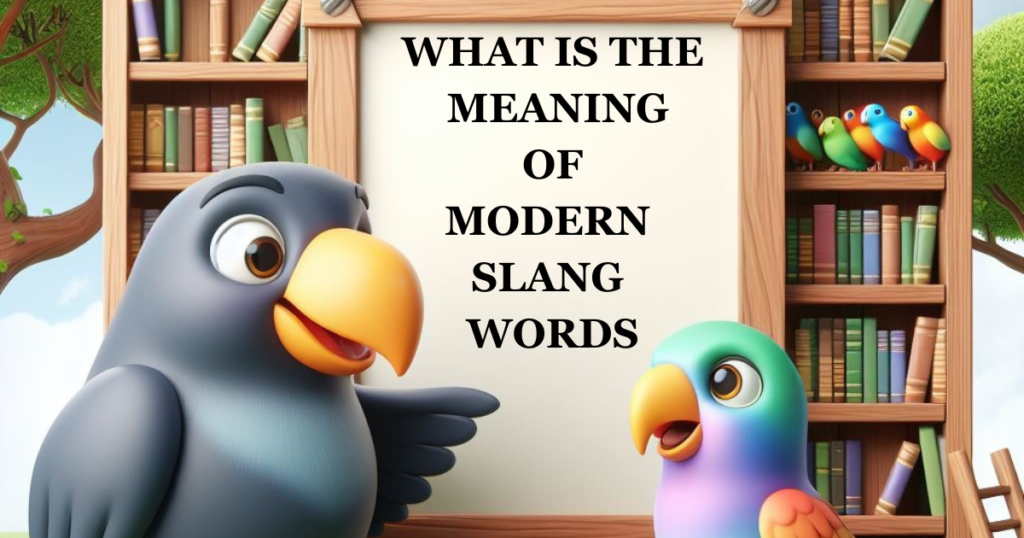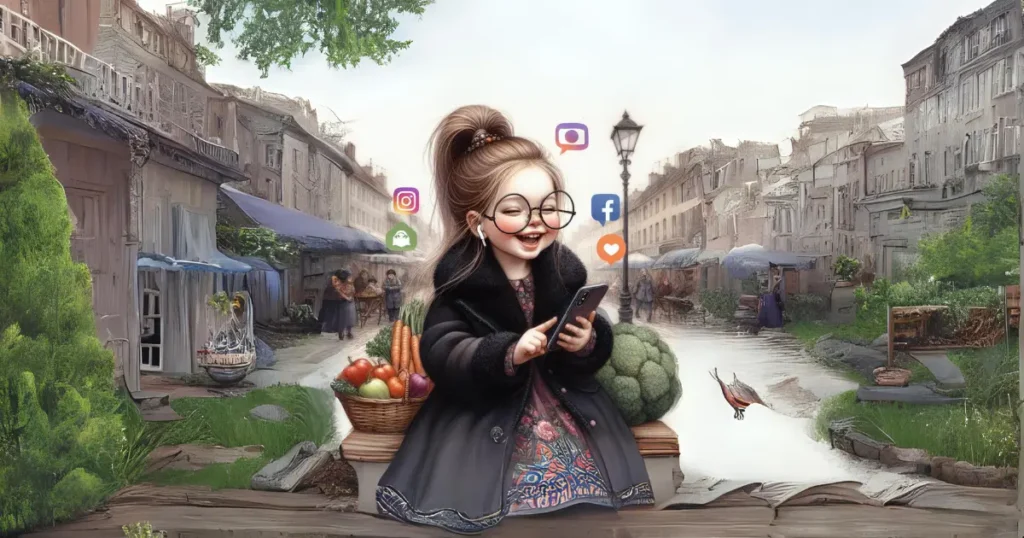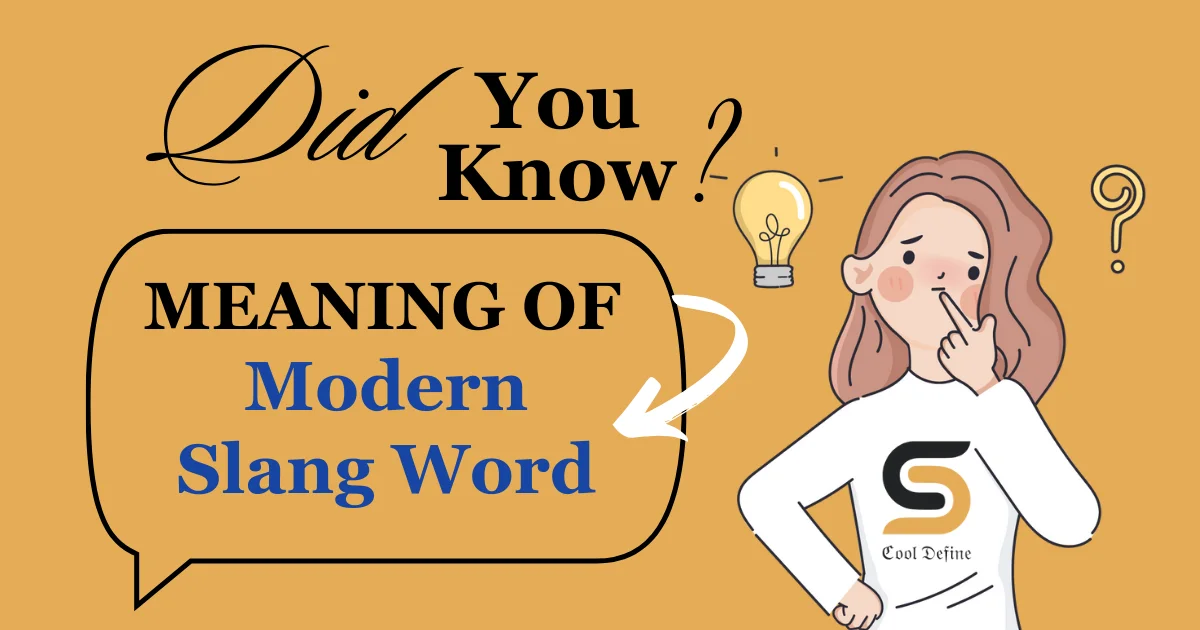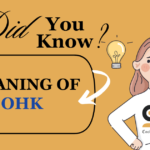The internet and social media have totally changed the way we communicate, fam. Slang words, acronyms, and informal language have become hella ingrained in our everyday talk, shaping our culture and influencing how language keeps on evolving and how peeps use social media. This article dives into the power of modern slang in this digital age and why it’s crucial to stay woke and pay attention to all those lit new slang terms.
Slang refers to very informal language that is usually restricted to specific groups. Online, slang spreads quickly and can take on meanings that extend beyond their original intent. As slang gets adopted into widespread use, it reflects larger social dynamics and changes taking place in culture. The internet accelerates this process, with trends and viral memes impacting slang usage.
Examining slang can provide fascinating insights into society. This article looks at how the internet and social media shape slang, the role slang plays in influencing culture and language, and why slang continues to be an ever-evolving, integral part of modern communication.

The Power of Social Media and the Internet: How They Shape Modern Slang?
Social media platforms and internet culture have had a significant impact on slang and the way language evolves, showcasing how new words and abbreviations become part of everyday language. Some key ways they influence slang include:
i. Faster Adoption of New Terms
Trends on social media spread quickly, leading new slang words and phrases to be rapidly adopted by larger groups. Terms like “hangry,” “JOMO,” and “subtweet” moved swiftly from niche usage to mainstream slang.
ii. Creating Subcultures and In-Groups
Internet subcultures often create their own unique slang. These terms start confined to small groups before eventually spreading more widely. From Stan Twitter to Reddit lingo, specialized communities shape new slang.
iii. Accelerating Exposure to Diverse Groups
Being exposed to more perspectives and backgrounds online can introduce people to slang from outside their usual social circles, including new words and acronyms used on social media. Slang crossing over from one group to another reflects changing social dynamics and the role of social media in introducing new words to broader audiences.
iv. Viral Memes and Trends Impacting Meaning
When a slang phrase takes off as a viral meme, its evolution and meaning can change rapidly as it spreads. Trending on social media or being adopted by influencers grants some terms staying power.
v. Fostering Belonging Through Shared Lingo
Using the same slang as a community you identify with online can make people feel part of an in-group. This creates a sense of belonging, as shared lingo bonds those with similar interests or mindsets.
The Drip Effect: How Slang Shapes Culture and Influences Language Trends
Slang plays a crucial role in shaping culture and impacting language more broadly, through the introduction of new words and the use of slang across various social media platforms. As slang evolves, it provides insights into cultural shifts taking place, highlighting how new words and acronyms are assimilated into everyday language. Some key ways slang usage influences culture and language include the incorporation of new words, the widespread use of acronyms, and how these elements become part of everyday language.
i. Reflecting Societal Change
New slang often reflects changing social dynamics, attitudes, identities, and norms. The evolution of terms related to gender, sexuality, race, and more reveal broader cultural changes.
ii. Representing Marginalized Voices
Slang within marginalized communities allows those groups to shape language and culture. Terms created by these groups eventually reach wider use, improving representation.
iii. Impacting Generational Differences
Younger generations influence language by introducing new slang, with their terms eventually used by older groups over time. This highlights generational shifts in perspectives and priorities, often reflected in the evolving use of slang within everyday language.
iv. Spreading Countercultures
Subcultures, niche communities, and counterculture groups have a significant influence on slang. As their lingo crosses over, it spreads perspectives outside the mainstream, illustrating how slang and the use of abbreviations impact broader language use.
v. Reinforcing In-Groups and Out-Groups
Slang often starts by bonding those within a specific group before spreading more widely. This can sometimes lead to misunderstandings or confusion with unfamiliar terms. But it also reflects social groups blending and the increased use of slang originating from these interactions.
iv. Driving Language Evolution
Successful new slang that fills a need to express specific ideas or emotions can eventually become established, accepted language, showing how acronyms and abbreviations become part of our everyday vernacular. The constant evolution of slang usage plays a key role in how language changes.

Slang: The Lit Ingredient That Adds Flair and Authenticity to Language
Slang usage is a fascinating aspect of language due to its dynamic, ever-changing nature. As an integral part of how language evolves, paying attention to slang, new words, and abbreviations is worth paying attention to for several reasons: it reflects generational changes and the rapid dissemination of language on social media.
i. It Highlights Social Shifts
Monitoring new slang can reveal changing cultural attitudes, new identities forming, and shifts in social dynamics earlier than more formal language monitoring. Slang provides unique insights.
ii. It Improves Communication
Successful new terms fill linguistic gaps. Adding slang like “hangry” and “mansplain” improves communication by naming universal human experiences that lacked specific descriptions.
iii. It Signals Belonging
Slang bonds groups through inside terminology only understood by insiders. Using the right slang displays belonging and reinforces community affiliation in professional, personal, online and youth contexts.
iv. It Boosts Expressiveness
The brevity, humor and emotional impact of slang enhances expressiveness. Slang perfectly captures sentiments in pithy words in ways traditional language cannot through colorful imagery.
v. It Represents Playfulness
The creation and evolution of slang represents playfulness, experimentation and imagination. Slang innovations display the adaptability and joy found in language itself, signifying how the use of slang contributes to language use being more dynamic. Even when offensive, slang demonstrates linguistic creativity.
In Summary:
- Social media and the internet accelerate the adoption of new slang and shape how slang evolves, including the creation of new words and the widespread use of acronyms.
- Slang plays a crucial role in influencing culture and language more broadly
- Monitoring new slang can provide insights into social change earlier than formal language tracking
- Successful new slang terms become lasting language by filling emotional, identity, and communicative needs in expressive ways
- The ever-changing nature of slang highlights the dynamism and playfulness possible in language
Paying attention to slang offers fascinating glimpses into youth culture, internet subcultures, marginalized groups inventing words to describe shared experiences, and much more, including the proliferation of new words and acronyms used on social media. Tracking the evolution of slang reveals insights into cultural forces and social dynamics impacting society in real-time. With the amplification of social media, slang shapes mainstream culture and language more quickly than ever before.



